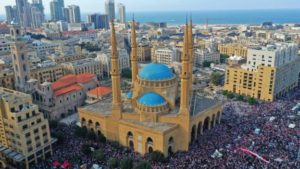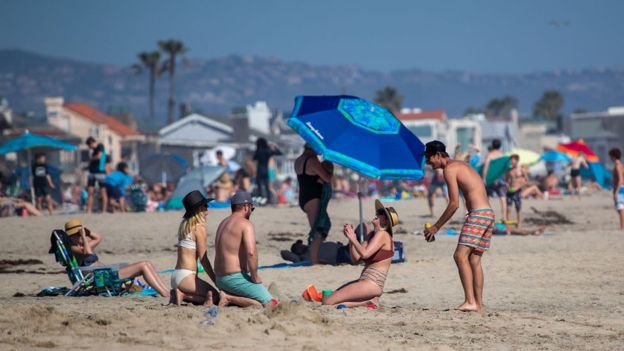News brief: Protests in Lebanon stretch into fourth day despite economic action
by Cody Roy, Zoey Yamamoto, Matthew Toombs and Olivia Preston
edited by Tyler Peterson and Christopher Bastien
The Lebanese government has approved a series of economic reforms in response to mass protests, according to the BBC.
Hundreds of thousands of protestors took to the streets across the country in response to a proposed tax on cell phone calls made through apps such as WhatsApp and Facebook, valued at a $0.20 daily charge. The tax was quickly dropped in response to the protests.
Protestors then shifted focus to wider grievances against the coalition government. These included accusations of corruption, as well as protestors calling for further economic action, as Lebanon’s economy has been poor with low growth and high debt (one of the highest levels in the world, at $86 billion).

(Photo: BBC) Tens of thousands take to the streets in the capital city of Beirut
According to the BBC, “Prime Minister Saad Hariri gave his coalition partners three days to agree to his planned economic reforms, which is expected to pass in cabinet meetings on Monday.”
These protests are the largest in the country in a decade and have been mostly peaceful, with some groups throughout the country chanting “revolution.” However, there have been reports of dozens of injuries in clashes between protestors and police.
Late Saturday night, four ministers from the right-wing Christian Lebanese Forces party resigned. Samir Geagea, the leader of this party, was convinced that the government could not resolve the crisis.
According to the BBC, Prime Minister Hariri has said that the protestors “had been heard, and that the reforms are not designed as a tradeoff.”


